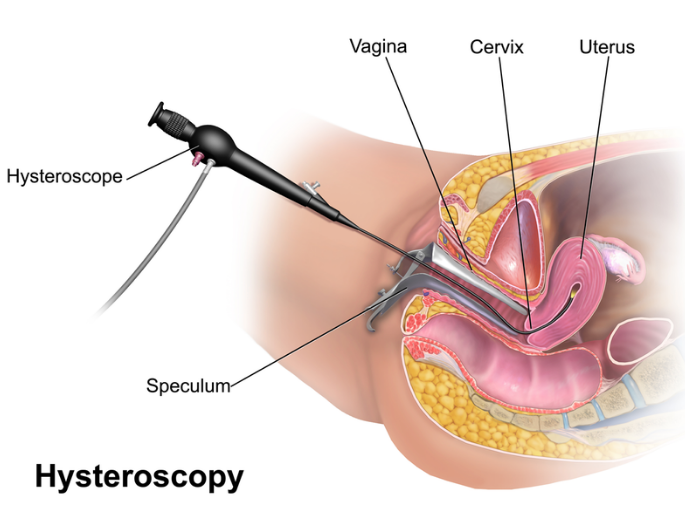Hysteroscopy in Phnom Penh
Search and Compare the Best Clinics and Doctors at the Lowest Prices for Hysteroscopy in Phnom Penh

Find the best clinics for Hysteroscopy in Phnom Penh
No pricing info available
Morocco offers the best prices Worldwide
Price: $ 222
From 1 verified reviews
Jenny Sophorn, 22 October 2019
Best experience that Anna could give to you prior to your delivery and motherhood. I’ve had the course here, she made me feel so confident about the process of delivery my baby. I had a full control of any conditions that happened to me. I could not imagine how I would deal without joining her class. Highly recommend to any newbie motherhood.
WHY US?
At Medijump, we're making medical easy. You can search, compare, discuss, and book your medical all in one place. We open the door to the best medical providers worldwide, saving you time and energy along the way, and it's all for FREE, no hidden fees, and no price markups guaranteed. So what are you waiting for?

Free

Best Price

Widest Selection

Risk-Free
What you need to know about Hysteroscopy in Phnom Penh

Hysteroscopy is a procedure that allows a doctor to examine the inside of a woman’s cervix and uterus in order to diagnose and treat issues, such as pelvic pain, difficulty getting pregnant and abnormal bleeding. It is performed using a thin and flexible tube with a camera and a light at the end called a hysteroscope, which will send an image to a monitor so your doctor can get an up-close look inside your cervix and uterus.
What does a Hysteroscopy Procedure Involve?
Hysteroscopy can be performed under local anaesthetic and sedative, but it can also be done under general anaesthetic. Medication or tools called dilators are used to help open your cervix to allow the hysteroscope to be inserted. Then, a liquid solution or carbon dioxide gas is inserted through the hysteroscope into the uterus to clear away any blood or mucus and expand it, which will give your doctor a clear view of its lining. If surgery needs to be performed, the surgeon may do it during the procedure using tiny surgical instruments that are inserted through the hysteroscope.
How Long Should I Stay in Phnom Penh for a Hysteroscopy Procedure?
You may be able to leave the hospital several hours after the procedure. However, it is recommended to stay in Phnom Penh for around 2 to 3 days, especially if you had treatment during the procedure or if you received general anaesthetic as you will need to allow your body to rest for several days.
What's the Recovery Time for Hysteroscopy Procedures in Phnom Penh?
Most women are able to get back to work as well as their normal activities the day after the procedure. But, you may want to rest for a few days if a general anaesthetic was used or treatment was performed during your hysteroscopy. Note that you need to avoid sex for around 2 weeks after the procedure.
What sort of Aftercare is Required for Hysteroscopy Procedures in Phnom Penh?
You may experience cramping and bleeding, but you can take pain medication and wear pads to deal with this. If the result of your hysteroscopy shows any disease or abnormalities, you may want to schedule a follow-up appointment with your doctor in Phnom Penh or with your local doctor at home to discuss a treatment plan.
What's the Success Rate of Hysteroscopy Procedures in Phnom Penh?
Hysteroscopy is a highly successful and effective procedure to examine your uterus and cervix. Nonetheless, there is still a small chance that the result is inaccurate, but it is very rare. Also, there are some side effects and complications to be aware of, including infection, tearing or damage to the cervix, damage to nearby organs, pelvic inflammatory disease, problems with gas or fluid from the uterus, and problems with the anaesthetic.
Are there Alternatives to Hysteroscopy Procedures in Phnom Penh?
The alternatives to hysteroscopy are pelvic ultrasound and endometrial biopsy. These procedures can be performed alongside a hysteroscopy, but they do not provide as much information as a hysteroscopy.
What Should You Expect Before and After the Procedure
Before hysteroscopy, you may have an unknown condition in your uterus or cervix, which may be dangerous and life-threatening. After the procedure, you will find out what is causing the symptoms and you can discuss with your doctor the best treatment plan.
Whilst the information presented here has been accurately sourced and verified by a medical professional for its accuracy, it is still advised to consult with your doctor before pursuing a medical treatment at one of the listed medical providers
No Time?
Tell us what you're looking for and we'll reachout to the top clinics all at once
Enquire Now

Popular Procedures in Phnom Penh
Prices Start From $106

Prices Start From $131

Prices Start From $47

Recommended Medical Centers in Phnom Penh for Hysteroscopy

- Interpreter services
- Translation service
- Religious facilities
- Medical records transfer
- Medical travel insurance
- Health insurance coordination
- TV in the room
- Safe in the room
- Phone in the room
- Private rooms for patients available

- Interpreter services
- Translation service
- Religious facilities
- Medical records transfer
- Medical travel insurance
- Health insurance coordination
- TV in the room
- Safe in the room
- Phone in the room
- Private rooms for patients available

- Interpreter services
- Translation service
- Religious facilities
- Medical records transfer
- Medical travel insurance
- Health insurance coordination
- TV in the room
- Safe in the room
- Phone in the room
- Private rooms for patients available

- Interpreter services
- Translation service
- Religious facilities
- Medical records transfer
- Medical travel insurance
- Health insurance coordination
- TV in the room
- Safe in the room
- Phone in the room
- Private rooms for patients available

- Interpreter services
- Translation service
- Religious facilities
- Medical records transfer
- Medical travel insurance
- Health insurance coordination
- TV in the room
- Safe in the room
- Phone in the room
- Private rooms for patients available

- Interpreter services
- Translation service
- Religious facilities
- Medical records transfer
- Medical travel insurance
- Health insurance coordination
- TV in the room
- Safe in the room
- Phone in the room
- Private rooms for patients available

- Interpreter services
- Translation service
- Religious facilities
- Medical records transfer
- Medical travel insurance
- Health insurance coordination
- TV in the room
- Safe in the room
- Phone in the room
- Private rooms for patients available

- Interpreter services
- Translation service
- Religious facilities
- Medical records transfer
- Medical travel insurance
- Health insurance coordination
- TV in the room
- Safe in the room
- Phone in the room
- Private rooms for patients available

- Interpreter services
- Translation service
- Religious facilities
- Medical records transfer
- Medical travel insurance
- Health insurance coordination
- TV in the room
- Safe in the room
- Phone in the room
- Private rooms for patients available
Hysteroscopy in and around Phnom Penh
Popular Searches
- Plastic Surgery in Thailand
- Dental Implants in Thailand
- Hair Transplant in Thailand
- Breast Augmentation Thailand
- Gastric Sleeve in Thailand
- Gender Reassignment Surgery in Thailand
- Laser Hair Removal in Bangkok
- Botox in Bangkok
- Dermatology in Bangkok
- Breast Augmentation in Bangkok
- Coolsculpting in Bangkok
- Veneers in Turkey
- Hair Transplant in Turkey
- Rhinoplasty in Turkey
- Stem Cell Therapy in Mexico
- Rhinoplasty in Mexico
- Liposuction in Mexico
- Coolsculpting in Tijuana
- Rhinoplasty in Korea
- Scar Removal in Korea
- Gastric Sleeve in Turkey
- Bone Marrow Transplant in India
- Invisalign in Malaysia
- Plastic Surgery in the Dominican Republic
- Tummy Tuck in the Dominican Republic
- Plastic and Cosmetic Surgery in Poland
- Rhinoplasty in Poland
- Hair Implant in Poland
- Dental Implants in Poland
- IVF in Turkey